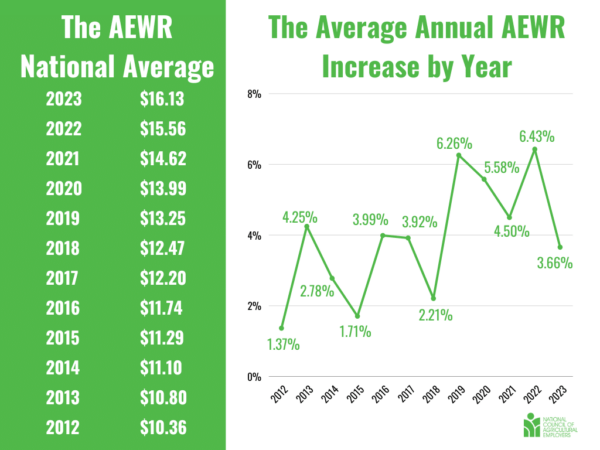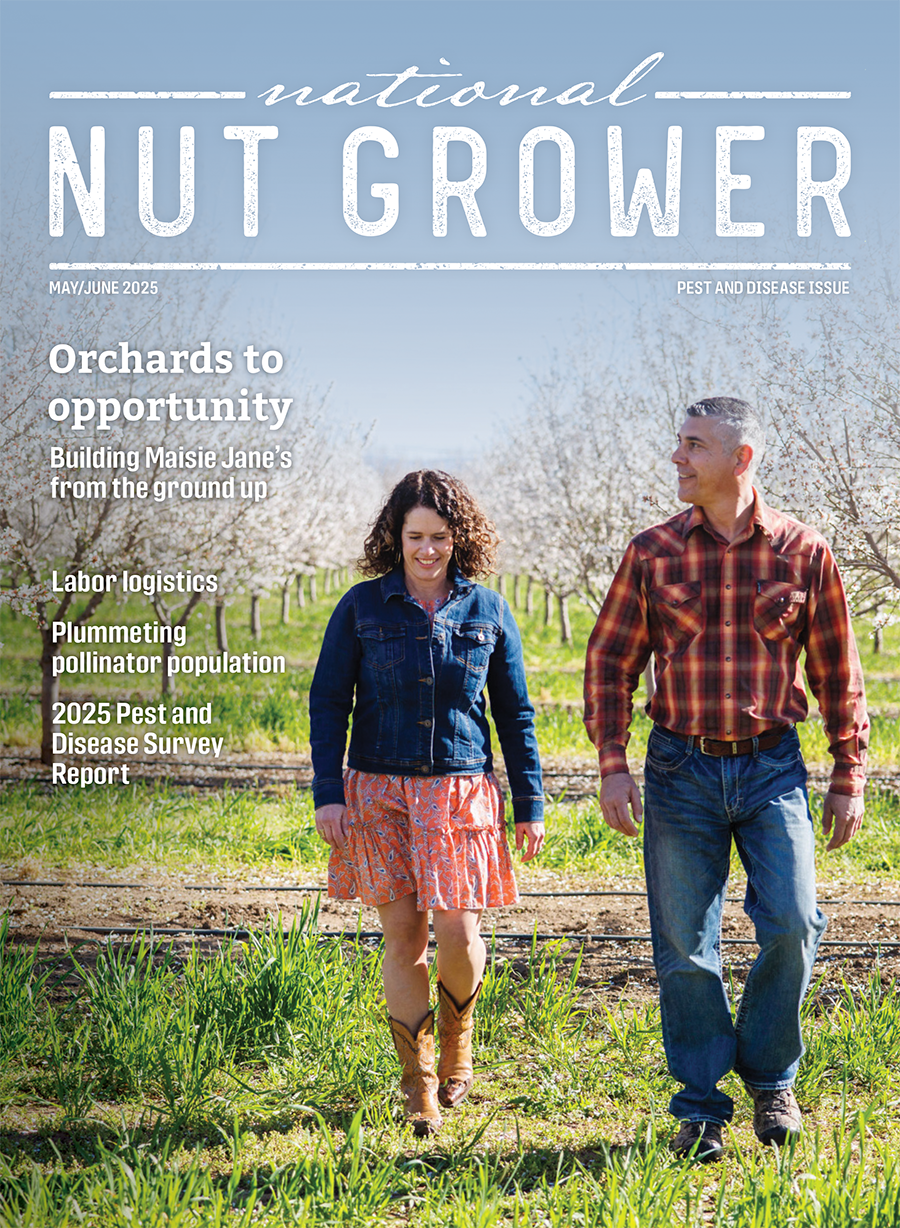Mar 22, 2023Farm groups urge Congress to pass the Farm Operations Support Act
Farm groups have urged Congress to pass the Farm Operations Support Act, which would decrease the Adverse Effect Wage Rate (AEWR) paid to H-2A temporary visa farm workers to 2022 levels. That would drop the current national average AEWR of $16.13 to $15.56.
Currently, the AEWR ranges from $18.65 in California to $13.67 in Alabama, Arkansas, Georgia, Louisiana, Mississippi and South Carolina.

Senators Jon Ossoff, D-Ga., and Thom Tillis, R-NC, introduced the Farm Operations Support Act, which would also freeze the AEWR to 2022 levels until the end of this year.
“The 2023 AEWR rule missed the mark by such a wide margin that farmers in some states experienced required wage increases of more than 10% after smaller increases last year,” according to an American Farm Bureau Federation statement. “In Michigan and Florida, for example, wages have increased 13% and 15% compared to 2022 rates. Furthermore, DOL’s newly published rule in February 2023 will raise costs even higher for certain occupations on farm.”
American Farm Bureau president Zippy Duvall said farmers are committed to paying employees fair wages, but the new AEWR rule used flawed data.
“Requiring farmers to pay their workers far more than the average domestic worker is earning just makes no sense, especially in the face of high supply costs, inflation and a global food shortage,” Duvall said in a statement.
“The AEWR formula is imposing on Georgia farmers a sudden and massive increase in costs. The whole country depends upon Georgia farmers for food supply. I’m leading this bipartisan legislation to prevent damage to Georgia’s agricultural producers,” Ossoff said in a news release from the Georgia Fruit & Vegetable Growers Association.
Tillis said North Carolina growers are also facing unprecedented challenges.
“The H-2A visa program has long been a last-resort option for farmers as a legal and reliable source of labor to plant, grow, and harvest their crops; however, the wage rate farmers are required to pay by the Department of Labor has long outpaced the rate of inflation and become unsustainable,” Tillis said in the release. “This year’s increase has only exacerbated the current national labor crisis.”
New H-2A fees
The GFVGA and other ag groups are also opposing new H-2A fees from the U.S. Citizenship and Immigration Services, which include a raise from $460 to $1,080 for petition fees and $600 for an asylum program fee.
“GFVGA supports all efforts to decrease this exorbitant increase in fees that come on top of the 14% increase in H-2A wages Georgia growers were saddled with earlier this year,” according to the release.
The DOL released a set of Frequently Asked Questions pertaining to the 2022 and 2023 H-2A rule changes at https://www.dol.gov/agencies/eta/foreign-labor/faqs/print .









